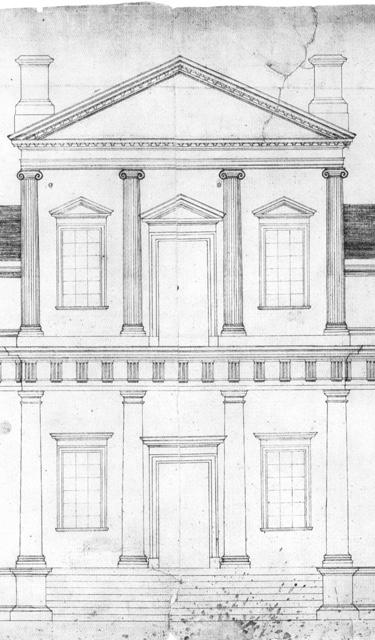




Thomas Jefferson sought to create a “wall of separation between Church & State,” rejecting the historical entanglement of government and religion he believed denied people a fundamental right of conscience and the right to think and decide for oneself so essential to a republic.
Jefferson was not anti-religious, but felt that religion was a private matter, not to be interfered with by government, or by others. He believed people should exercise forbearance in matters of religion, writing: “Perhaps the single thing which may be required to others before toleration to them would be an oath that they would allow toleration to others.”
Throughout our history as a multi-religious country, Americans have faced challenges in the safe-guarding of religious freedom, and it remains a relevant issue in American society today.

Jefferson considered the Virginia Statute for Religious Freedom one of his three greatest achievements. James Madison ushered the statute through the Virginia legislature and incorporated its commitment to religious freedom and the separation of church and state into the Bill of Rights. These principles would end state-sponsored religion in the United States and the denial of full rights to its citizens of other faiths. Today, Americans may take this right for granted, yet it was the hard-won result of a decade-long effort by Jefferson and Madison.

Jefferson first proposed the Statute of Religious Freedom in 1779 and was met with resistance. Years later, while Jefferson was in France, James Madison appealed to the Virginia Assembly to finish the ideals of the American Revolution to fully break with British practices, reject government support of religion, pass Jefferson's statute, and embrace religious freedom in the new nation. The new law would protect the rights of all faiths and was finally enacted in 1786.

"I contemplate with sovereign reverence that act of the whole American people which declared that their legislature should ‘make no law respecting an establishment of religion, or prohibiting the free exercise thereof,’ thus building a wall of separation between Church & State."
-Thomas Jefferson to the Baptist Association of Danbury, Connecticut, January 1, 1802
Monticello’s enslaved community engaged in a vital spiritual life of different faiths, from Christian prayer meetings to the use of a local practitioner of African traditional beliefs. After freedom, many freedmen from Monticello and their descendants became ministers and lay readers.





"...religion is a matter which lies solely between Man & his God, that he owes account to none other for his faith or his worship, that the legitimate powers of government reach actions only, & not opinions..."
A Civic Engagement Initiative sponsored by and in collaboration with The New York Community Trust – The Peter G. Peterson Fund. 
ADDRESS:
1050 Monticello Loop
Charlottesville, VA 22902
GENERAL INFORMATION:
(434) 984-9800
